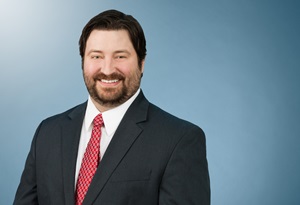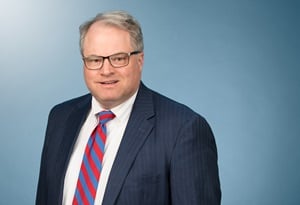Minnesota Legislative Update: Third Committee Deadline Passes
This week marked the third and final committee deadline for the Minnesota Legislature, requiring committees in both the DFL-controlled House and Republican-controlled Senate to act on major finance and appropriation bills. After the committees finish their work on Friday afternoon, legislators will depart the Capitol for a 10-day Easter/Passover Break, returning to business on Tuesday, April 23.
When legislators return, they will have their work cut out for them. Members will spend long hours on the floor debating the budget proposals. Under an agreement between House Speaker Melissa Hortman (DFL-Brooklyn Park), Senate Majority Leader Paul Gazelka (R-Nisswa), and Governor Tim Walz (DFL), the Senate and House will have a little over a week to pass their finance bills and appoint conference committees by May 1. Leadership will provide each conference committees with a single budget target by May 6. The leadership agreement further outlines that the conference committees complete their work by May 13.
Leadership agreed to these joint timelines in an effort to steer the Legislature to budget compromise. Thus far, the House and Senate budgets appear to be very different bills — and compromise appears daunting. They must deliver an entire budget for Governor Walz to sign on May 20.
Taxes
On Monday, April 8, the House DFL unveiled its omnibus tax bill. The proposal would raise $1.2 billion in new revenue, primarily through corporate tax increases. The chair of the House Tax Committee, Rep. Paul Marquart (DFL-Dilworth), said the bill prioritizes Minnesota’s families, farmers and small businesses by restoring fairness to the state tax code. Marquart said Democrats would do this by expanding the working family tax credit and requiring corporations to “pay their fair share.” Key provisions highlighted by House Democrat Leadership of the bill include:
- Expansion of the working family tax credit
- Increase in the Social Security subtraction
- A one-time $10 million appropriation for the small business investment credit
- $73 million in new aid provided for local governments
- A new 3% tax on preferential rate income that exceeds $500,000
In addition to these provisions, the bill also makes various adjustments to conform to the federal changes under the Tax Cuts and Jobs Act (TCJA). The bill changes the starting point for individual income taxes from federal taxable income (FTI) to federal adjusted gross income (FAGI) and increases the allowed standard deduction amounts to match those of the TCJA. While the proposal makes extensive conforming changes, one area in which it does not conform to federal law is global intangible low-tax income (GILTI) provisions. Under the House proposal, corporations that qualify for GILTI are pulled into the domestic unitary group, allowing for their foreign income to be taxed based on the company’s in-state sales. Marquart said addressing tax avoidance strategies, such as the use of tax havens, is essential to the DFL’s effort to restore tax fairness.
Republicans of both the Senate and House pushed back, indicating the proposal would raise $12 billion in new taxes over the next four years, driving businesses and families from the state. Senate Tax chair Roger Chamberlain (R-Lino Lakes) called the proposal “disastrous.” Chamberlain is expected to unveil the Senate omnibus tax bill following the legislative break.
Transportation
With the Legislature divided, it’s no surprise that the Senate and House Transportation committees have put forth two very different omnibus finance bills. While the House Transportation bill makes slight departures from the recommendations of Governor Walz, there is great contrast between the Governor’s proposal and that of the Senate.
The Governor’s transportation budget request included a 20-cent increase in the gas tax to be phased in over the course of two years. Because the gas tax is constitutionally required to be used as a dedicated funding source for roads and bridges, the Governor says the increase is critical to making necessary repairs and improvements to Minnesota’s “crumbling” transportation infrastructure. The House proposal backs the 20-cent increase in the gas tax, but instead phases it in at a rate of five cents per year for four years. Democrats argue that a dedicated funding source for roads and bridges is essential and would allow the state to shift money back into the General Fund for things like education and health care.
Senate Majority Leader Gazelka and fellow Republicans have been vocal opponents of the increase, arguing it will be a significant financial burden on Minnesotans, especially those outside the metro area. It came as no surprise the Senate transportation bill did not provide for an increase in the gas tax. The House did include the Governor’s increase in the motor vehicle sales tax to 6.875%, a provision not included in the Senate’s package.
Another area where proposals diverge is regarding the issue of transit funding. The House Transportation bill includes a half-cent sales tax increase in the seven-county metro area to fund transit projects, which contrasts slightly with the Governor’s recommendation of one-eighth of a cent. The omnibus bill making its way through the Senate does not provide for any increase in this tax.
The Senate Transportation Committee’s bill appropriated $125 million annually to the trunk highway fund (THF) for state road construction in addition to another $25.5 million each year for program delivery. Their THF package also included a one-time appropriation of $38 million for work on Trunk Highway 212 and created an ongoing reduction in the Corridors of Commerce program at a rate of $25 million per year. The Senate’s appropriations fall short in fulfilling the Governor’s request that the Legislature authorize $2 billion in trunk highway bonds between 2022 and 2030.
In contrast, the House bill does provide for the $2 million in bonds, while also appropriating $300 million over FY 2022-24 for the Corridors of Commerce program. The House proposal bolsters the transportation budget by increasing the motor vehicle registration tax from 1.25 percent to 1.5 percent, in lockstep with the Governor’s proposal. While the Governor proposed increasing the base tax fee from $10 to $45, the House went a more modest route and adjusted the base to $20 instead. Finally, the House modified the depreciation schedule for tab fees so that a vehicle’s base value is increased in each year of vehicle life until the vehicle exceeds 10 years of age, another win for the Governor.
Hands-Free Driving
This week, members of the conference committee on HF 50 came to an agreement on the hands-free driving proposal authored by Rep. Frank Hornstein (DFL-Minneapolis). A similar proposal carried by Senator Newman (R-Hutchinson).
Despite concerns voiced by some Republicans around enforcement and civil liberty infringement, the bill passed as amended by conference, with a bipartisan vote of 107-19.
The bill also allows for single-touch or voice-activated technology but forbids typing or scrolling on any device. The agreed upon language provides an exemption for emergency services vehicles as well as for those seeking help in a potentially life-threatening situation. The final agreement clarifies the definition of a wireless communication device, specifying that in-counsel devices such as GPS and two-way radios are not subject to prohibition under the hands-free driving bill.
This morning, Governor Walz signed the bill into law.
With legislative activity suspended, due to the Easter/Passover break, there will not be a legislative update next week.
Important Dates
- May 1, 2019 – All Finance Bills Passed Off House/Senate Floor
- May 6, 2019 – Fiscal Targets Given to Finance Bill Conference Committees
- May 13, 2019 – Conference Committee Reports Due to Original Body
- May 20, 2019 – Last Day of the Legislative Session



